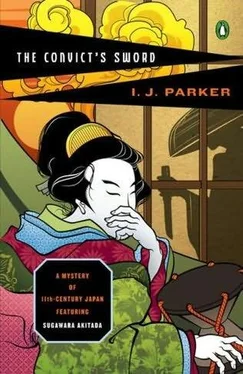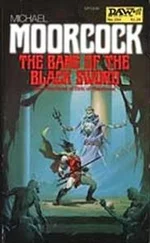I Parker - The Convict's sword
Здесь есть возможность читать онлайн «I Parker - The Convict's sword» весь текст электронной книги совершенно бесплатно (целиком полную версию без сокращений). В некоторых случаях можно слушать аудио, скачать через торрент в формате fb2 и присутствует краткое содержание. Жанр: Исторический детектив, на английском языке. Описание произведения, (предисловие) а так же отзывы посетителей доступны на портале библиотеки ЛибКат.
- Название:The Convict's sword
- Автор:
- Жанр:
- Год:неизвестен
- ISBN:нет данных
- Рейтинг книги:4 / 5. Голосов: 1
-
Избранное:Добавить в избранное
- Отзывы:
-
Ваша оценка:
- 80
- 1
- 2
- 3
- 4
- 5
The Convict's sword: краткое содержание, описание и аннотация
Предлагаем к чтению аннотацию, описание, краткое содержание или предисловие (зависит от того, что написал сам автор книги «The Convict's sword»). Если вы не нашли необходимую информацию о книге — напишите в комментариях, мы постараемся отыскать её.
The Convict's sword — читать онлайн бесплатно полную книгу (весь текст) целиком
Ниже представлен текст книги, разбитый по страницам. Система сохранения места последней прочитанной страницы, позволяет с удобством читать онлайн бесплатно книгу «The Convict's sword», без необходимости каждый раз заново искать на чём Вы остановились. Поставьте закладку, и сможете в любой момент перейти на страницу, на которой закончили чтение.
Интервал:
Закладка:
The wood crackled and hissed. The monks chanted. And gradually the smoky air assumed another, more choking smell.
Akitada thought of the fire, the heat of it, grieved that the small body which had suffered the burning fever should now be given to the flames. He closed his eyes and took shallow breaths.
That night Tamako came to Akitada’s room. He was awake when his door slid open, staring into a darkness so heavy that it burned his eyes as if it were the sun or a raging fire.
Her footsteps told him that she was barefoot, and he wondered what she wanted. He knew soon enough. She lifted his cover and slipped in beside him. Without uttering a word, she reached for him with hot, eager hands, peeling back his robe and pressing her body against him. She wore only a thin silk robe that parted in front.
He did not know what to do. A great pity for her seized him, and then he was disgusted with himself for responding to her lovemaking on this night of all nights. Tamako had never been this demanding, had never behaved with the wild abandonment of a public courtesan before. In all the years of their marriage, she had been a gentle and modest woman who took quiet pleasure in their physical encounters but never initiated them. Now she was clutching at him, seeking his mouth with hungry lips, and when he was ready, she pulled him onto her, grasping him with arms and thighs as if he might get away, meeting him almost violently, until she cried out her own fulfillment and slackened into abrupt lethargy.
Akitada finished, and rolled aside. He felt sick and was afraid because she lay so very still. “Tamako?” he asked, touching her temple through sweat-drenched hair.
She gave a single hoarse sob and was gone.
The sound of the door closing lingered in the darkness. The sharp scent of their lovemaking mingled with the smoky stench of Toribeno, which still clung to the funeral robe he had draped over a stand.
After weeks of coldness, his wife had come to him on the night of their son’s funeral. Why? Because she wished to replace the dead child with another as quickly as possible?
Akitada’s stomach heaved. He gagged on hot vomit and staggered into the garden.
The next morning, before sunrise and with most of the household still asleep, Akitada saddled his horse and left. Only Genba knew where he was headed, but he would pass the information on to the others.
Akitada wore traveling clothes and had Haseo’s sword slung over his shoulder. It seemed appropriate that he should take up Haseo’s battle with it. His own sword was lost, probably forever, but family tradition paled when you had just lost your only son. Of course, there might be other sons some day. Tamako’s frenzied use of him during the night could result in pregnancy, but Akitada’s flight-and he knew that was what it was-told him that he feared the prospect. He did not want another child to take Yori’s place. He never wanted to lose another child so horribly.
He passed through the capital quickly, riding straight down Suzaku Avenue toward Rashomon. The streets were almost deserted, though red-coated constables were in evidence near the markets. Another distribution of grain? As long as the markets remained closed, the threat of famine was added to the grim specter of smallpox.
The official scavengers were busy at the Great Gate, a customary place to leave your unburied dead. Beyond stretched the Saikaido, highway to the western ocean, toward a green and mountainous countryside. In the far distance, hidden in a blue haze, was Haseo’s home and the sacred Hachiman Shrine. Akitada left death behind, hoping to find a way back to life.
Along the highway was more evidence of the epidemic. He passed two rotting corpses. In their haste to flee the city, a man and a woman had succumbed to the disease, proving, like Soga, the foolishness of trying to escape fate.
Akitada considered fear and found he had none. It seemed to him that this was so because he no longer valued his life. Only those who found happiness and contentment in their existence feared losing it. It was a cruel twist of fate that death had snatched Yori, so young and full of joy and laughter, and left behind his father.
But dwelling on Yori’s death caused unbearable pain, and so Akitada fled-leaving behind an empty house, agonizing memories, and constant reminders of guilt. He followed the trail of an old murder and betrayal, hoping to drive his demons back into the shadows of his mind.
By the time he reached Toba, he had reviewed the facts of Haseo’s case and felt hungry. He could not recall his last meal, or any meal he had felt an appetite for. Now that he had left the nauseating smoke of Toribeno behind and the air was sweeter, his body clamored for sustenance even when life seemed unbearable. Unfortunately, all the doors of the small town were closed to him. People feared travelers from the capital.
He rode on with a painfully empty belly. The highway soon crossed the Kamo River. There was boat traffic here, and a few miles farther he found a temple and stopped.
The monk who greeted him at the gate said they were low on provisions, having fed so many fugitives from the capital that they had only beans and millet left. The beans and millet had been boiled into a thick, pasty stew, but Akitada ate hungrily. He had taken only a few bites, when a small family arrived, a man with two women and two children. One of the children was a boy Yori’s age, and Akitada choked on his food. Leaving most of it behind, along with a donation, he fled back to the road.
Soon the Katsura River joined the Kamo, and more boats plied their trade on the water. He passed the vast Ogura swamp, through which the Uji River flowed to join the Kamo and the Katsura, and within another mile the Kii joined also, forming a wide river delta of swamps and sandbanks before becoming the fast and treacherous Yodo, which carried all the heavy shipping to the Inland Sea and Korea and China beyond. At the river confluence, the highway crossed a long timber bridge and turned west. All around Akitada was a flat landscape of watery rice paddies, with occasional farms shaded by trees rising like islands from a green and billowing sea. Here the peasants worked their land as they always had.
The mountains rose to the south, blue against a paler sky. Some inner need drove Akitada to visit the shrine first. To reach Mount Otoko he passed the barrier into Settsu Province and then crossed the river by ferry.
Before ascending the sacred mountain, Akitada bathed in the river and changed his clothes to cleanse himself of the pollution of the past days. It was getting dark before he reached the shrine on top of the sacred mountain and stabled his horse.
Perhaps he was foolish to come here, but something drew him to this place, a spiritual bond with the ancient gods of heaven and earth. As soon as he had passed under the red-lacquered torii and entered the forest path, he felt that he was in the presence of the gods. Large trees-camphor trees, he thought, but it was too dark here to be certain-enclosed him like sheltering wings. He felt calmer than he had in many months. His grief did not entirely disappear-he was convinced it never would-but it felt more natural, not like some foreign object which had been thrust deep into his belly and lay there festering. He felt a part of the mountain, the trees, the night, and when the tears finally spilled from his eyes, he let them fall unchecked.
Near the shrine was a small Buddhist temple where he asked for and received a place to sleep. And here he found his first rest after many sleepless nights.
He awoke well after sunrise to the cooing of hundreds of doves, and rose to pay his respects to the gods. There was no one about as he walked to the shrine building in the cool mountain air, rinsed his mouth and his hands with the clear water in a stone trough, and then prayed humbly to the gods of the mountain, and to Hachiman, protector of warriors and immanent spirit of this sacred place. He found no answering enlightenment for his troubles or Haseo’s, but he felt a sense of peace, and when he stepped from the shrine, the morning air seemed purer, the scent of camphor and pine fresher, and flocks of doves rose to circle the shrine hall.
Читать дальшеИнтервал:
Закладка:
Похожие книги на «The Convict's sword»
Представляем Вашему вниманию похожие книги на «The Convict's sword» списком для выбора. Мы отобрали схожую по названию и смыслу литературу в надежде предоставить читателям больше вариантов отыскать новые, интересные, ещё непрочитанные произведения.
Обсуждение, отзывы о книге «The Convict's sword» и просто собственные мнения читателей. Оставьте ваши комментарии, напишите, что Вы думаете о произведении, его смысле или главных героях. Укажите что конкретно понравилось, а что нет, и почему Вы так считаете.












